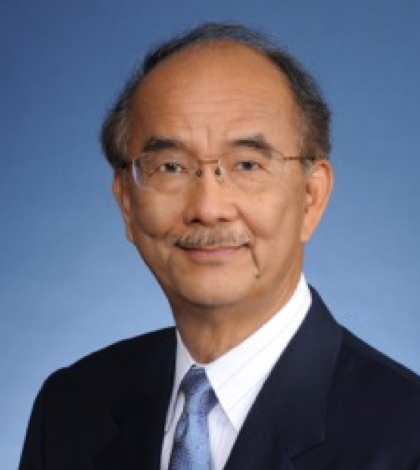The veteran broker says the presidency of that organization will allow him to get the message out about changes he would like to see in commercial real estate. The Taiwan native would also like to see more Asians get into the business.
In January, Joseph Lin was named 2016 president and executive chair or AIR Commercial Real Estate Association, an organization that provides information and education programs to commercial and industrial real estate brokers.
For the 66-year-old Lin, a senior vice president with Voit Real Estate Services and a specialist in industrial transactions, that appointment was no accident. He was a member of AIR for 16 years, eventually being named to the organization’s board of directors and its executive committee.
He was also its president-elect and was in charge of the non-profit group’s long-term planning, but all the while he was angling for the top job.
Now that he has it, he intends to make full use of the position, although he will have to work quickly. AIR presidents – Lin is the 48th – serve one-year terms, so he doesn’t have a lot of time to meet his goals.
Still, AIR is unquestionably a good platform for anyone who wants to engender change in the real estate industry. It represents more than 1,800 in the greater Los Angeles market, according to the organization’s website.
“I want to do something to change the perception that’s out there about real estate brokers,” said Lin, a native Taiwan who came to the United States in 1976, when he was 25 years old. “I think they’re seen as middle-men, and nothing more, but there’s a lot more to the job than that.”
Lin, who spent 13 years with CBRE Group Inc. before he joined Voit Real Estate Services, also wants to reach out to young brokers, and young Asian brokers in particular.
“They’re the future of our industry,” said Lin, who was a geologist and petroleum engineer before he got into real estate. “I want to show them how to act professionally and ethically, and tell them they shouldn’t always be thinking about going for the big paycheck. They need to know that they can have a great career, and have a great life, without approaching the job that way.”
Lin spoke with IE Business Daily recently about pursuing the top job with AIR, his sense of where the Inland Empire market is headed and how he managed a very unlikely career switch.
Q: So you wanted the AIR president’s job? It sounds like a volunteer position that most people would resist because it might take up too much time.
A: Oh, yes. I wanted it very much. It’s the perfect place to get done a lot of the things I would like to get done. Also, I know how the market works. I’ve been doing this for awhile.
Q: What other goals do you hope to accomplish running AIR?
A: I would like to see us add more members, maybe get the number up to 2,000. I said I want to reach out to young Asian brokers, but I also want get more Asians into the business to begin with. Let them know there’s a great career for them in real estate if they’re interested. Unfortunately, there are barriers to getting that done.
Q: What kind of barriers? Language?
A: That’s one of them. Real estate in general is a closed society, and it’s tough for anyone to get in. I’ve always thought of myself as an American first. I was born in Taiwan, but I’m an American, and that’s how I’ve always approached things. That would be my advice to any young Asian who wants to get into the business. That’s the way my wife and I raised our three children, and they’ve all excelled.
Q: Have you had to deal with much racial prejudice during your career?
A: Some, but not that much. Most of it I got from other Asians. [Laughs]
Q: Can you talk about your family background?
A: My Dad was in the rice business. He was put in jail in 1949 by Chiang Kai-shek [ leader of the Republic of China from 1928 to 1975] when the communists took over, and he ended up staying there for nearly 20 years. There was a lot of turmoil, and he tried to calm people down, so Chiang’s people accused him of being a communist infiltrator, which he wasn’t. It could have been worse, because a lot of people in his situation were killed. All of that happened right before I was born.
Q: You were a geologist and petroleum engineer before you became a commercial real estate broker. How did you get into that field?
A: I finished high school, and I was one of the 10 percent who was [eligible] to go to college. They gave me a list of subjects I could study and I choose geology, which in those days was the last thing most people chose. But when I graduated I had seven job offers, and I ended up getting into the oil business. I did my two years mandatory military service and then came to the United States.
Q: To go to work?
A. Not right away. I went to Texas A&M for two years and got a master’s degree in geology. Then I went to work for Phillips Petroleum in Oklahoma. I looked for drilling sites.
Q: How did you go from that to real estate?
A: I was in Bakersfield when that happened, working for ARCO. I was being transferred to West Texas, which I wasn’t happy about. I wanted more stability than that. One of my neighbors who was in commercial real estate suggested I get into real estate. Eventually I took the exam to get a broker’s license and passed.
Q: How did that move go over at home?
A: They were skeptical, I told them the base pay was zero, but the sky was the limit, since I was working on commission.
Q: What is your assessment of the Inland Empire industrial market right now?
A: It’s red hot, obviously. I don’t know how long that will last, but I assume it will stay up for awhile. I think the larger projects will continue to happen mostly on the east side, in Banning and Beaumont.
Q: Is there much talk among brokers about California going to $15 minimum wage, and what that might do to the local job market?
A: Not really. I think it’s hard to say at this point what impact it’s going to have. It’s being phased in over seven years, so there’s a lot of time to get ready. I think people are just keeping an eye on it.
 IE Business Daily Business news for the Inland Empire.
IE Business Daily Business news for the Inland Empire.


